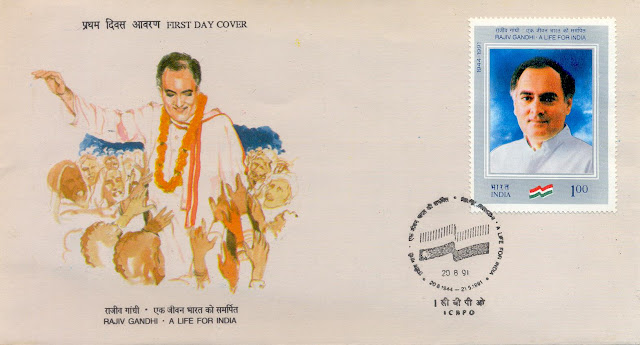Rajiv Ratna Gandhi (20 August 1944 – 21 May 1991) was the Prime Minister of India, serving from 1984 to 1989. He took office after the 1984 assassination of his mother, Prime Minister Indira Gandhi, to become the youngest Indian Prime Minister.
Gandhi (no relation to Mahatma Gandhi) was a scion of the politically powerful Nehru–Gandhi family, which had been associated with the Indian National Congress party.
After his brother Sanjay's death in an aeroplane crash in 1980, Gandhi reluctantly entered politics at the behest of Indira.
On the morning of 31 October 1984, his mother was assassinated by her bodyguards; later that day, Gandhi was appointed Prime Minister. Gandhi's leadership was tested over the next few days as organised mobs rioted against the Sikh community, resulting in riots in Delhi.
Rajiv Gandhi's period as Prime Minister was mired in controversy; the Bhopal disaster and the Shah Bano case. In 1988, he reversed the coup in Maldives, antagonising militant Tamil groups such as PLOTE, intervening and then sending Indian Peace Keeping Force troops to Sri Lanka in 1987, leading to open conflict with the Liberation Tigers of Tamil Eelam (LTTE). In mid-1987, the Bofors scandal damaged his corruption-free image and resulted in a major defeat for his party in the 1989 elections.
Gandhi remained Congress President until the elections in 1991. While campaigning for the elections, he was assassinated by a suicide bomber from the LTTE. In 1991, the Indian government posthumously awarded Gandhi the Bharat Ratna, the country's highest civilian award.

FDC of rajiv gandhi available to purchase?
ReplyDelete